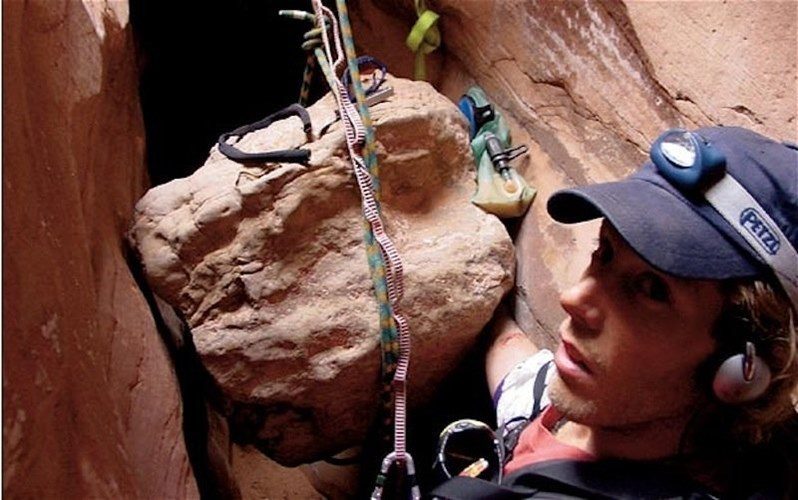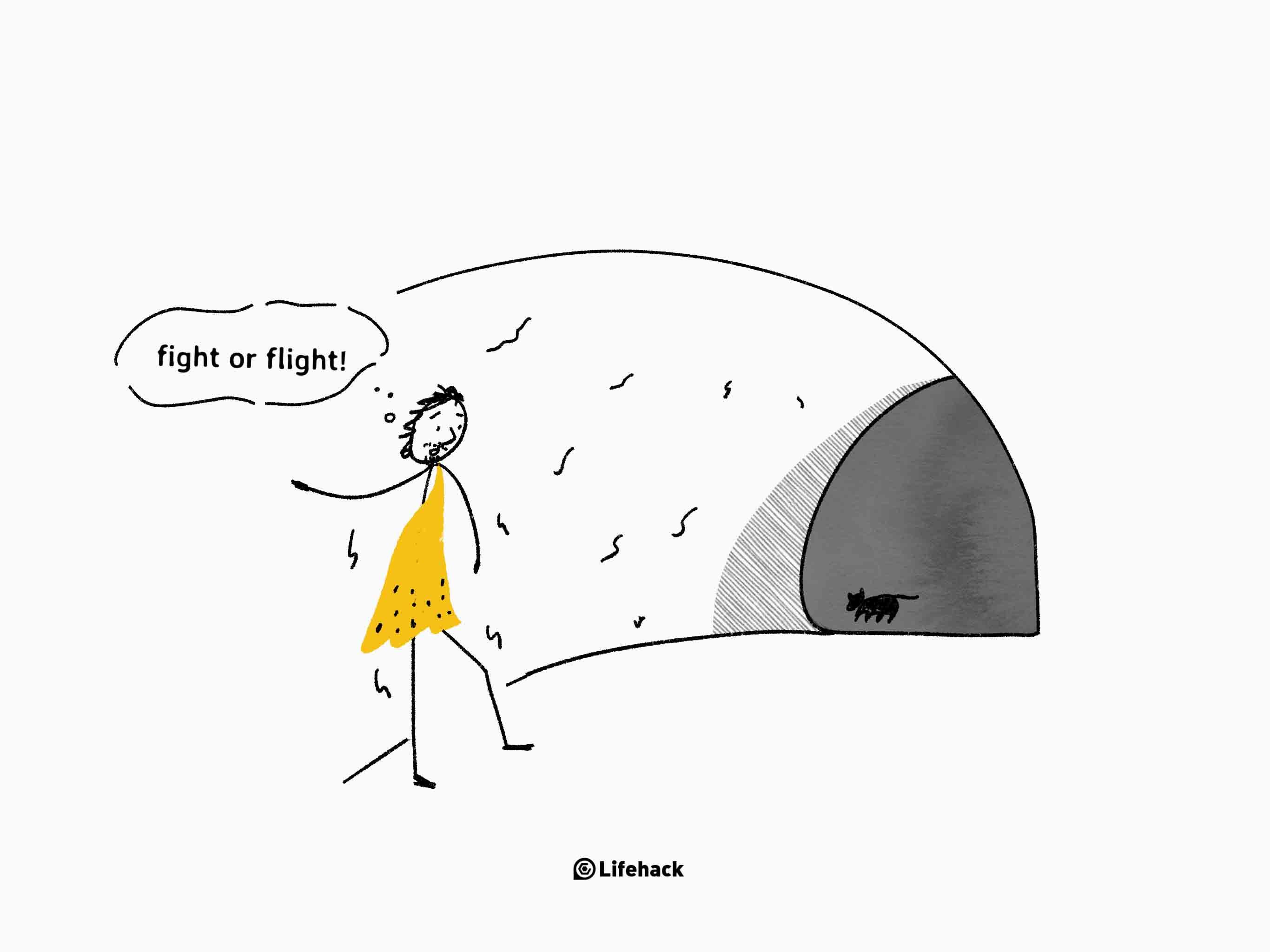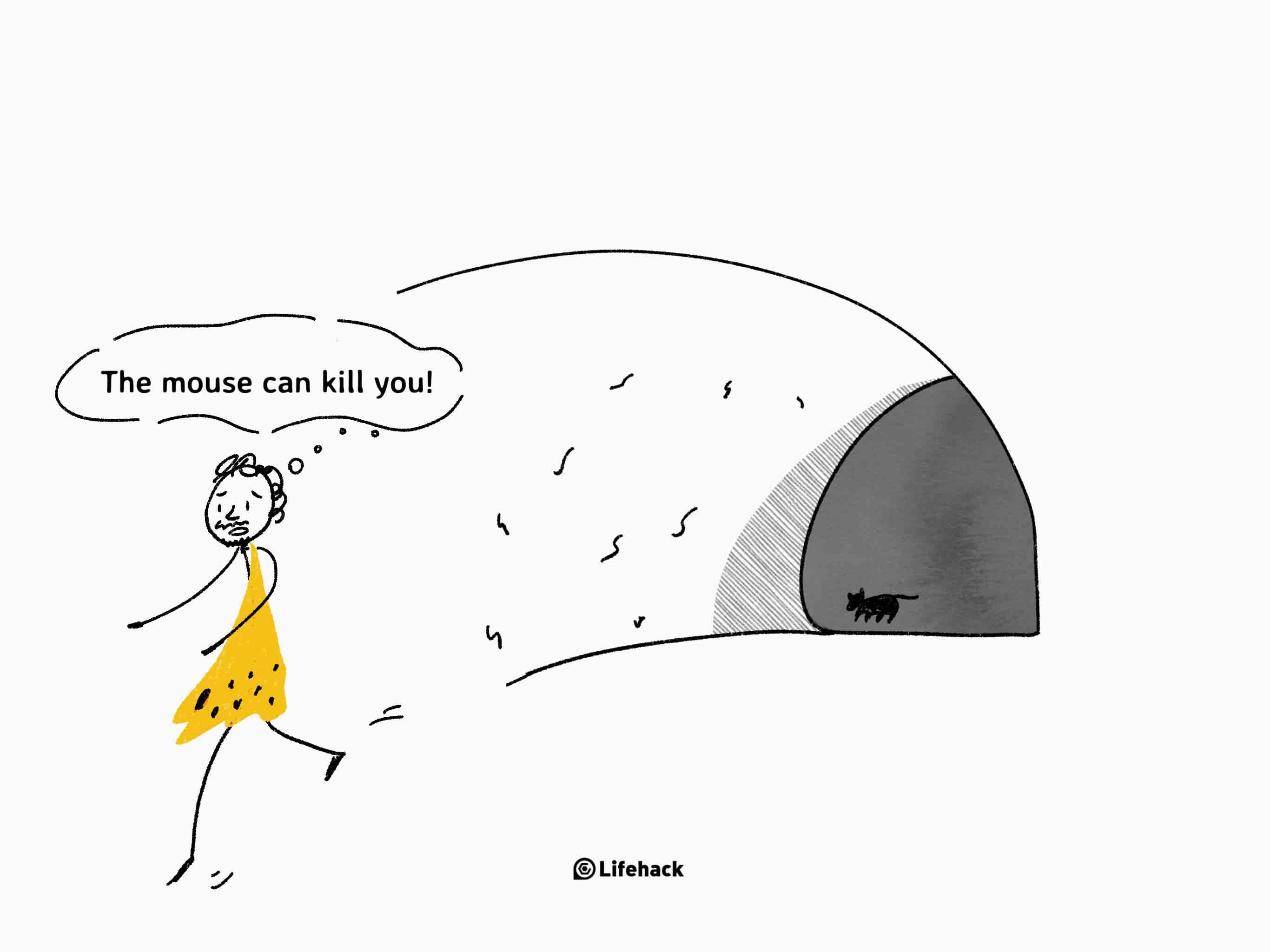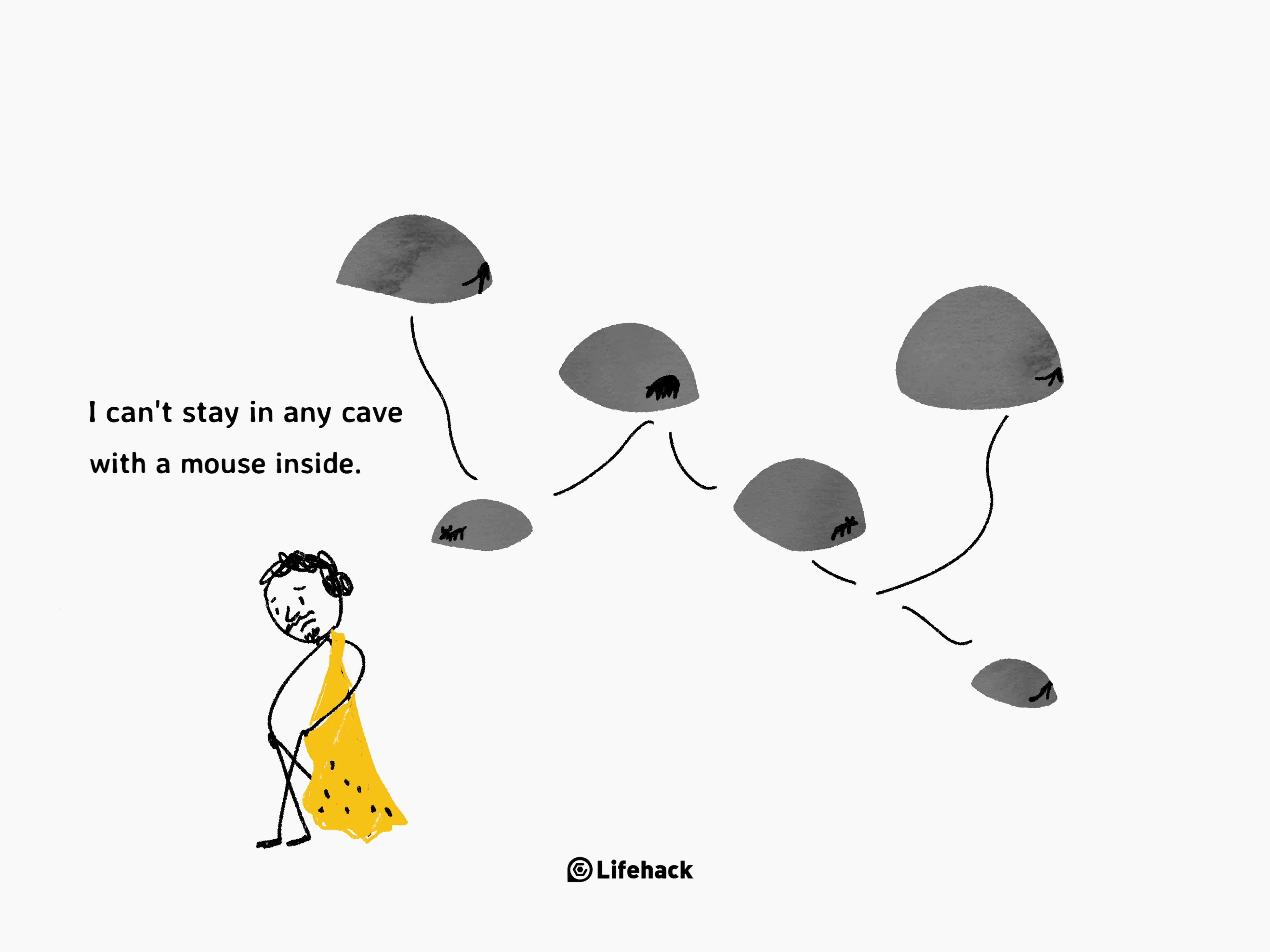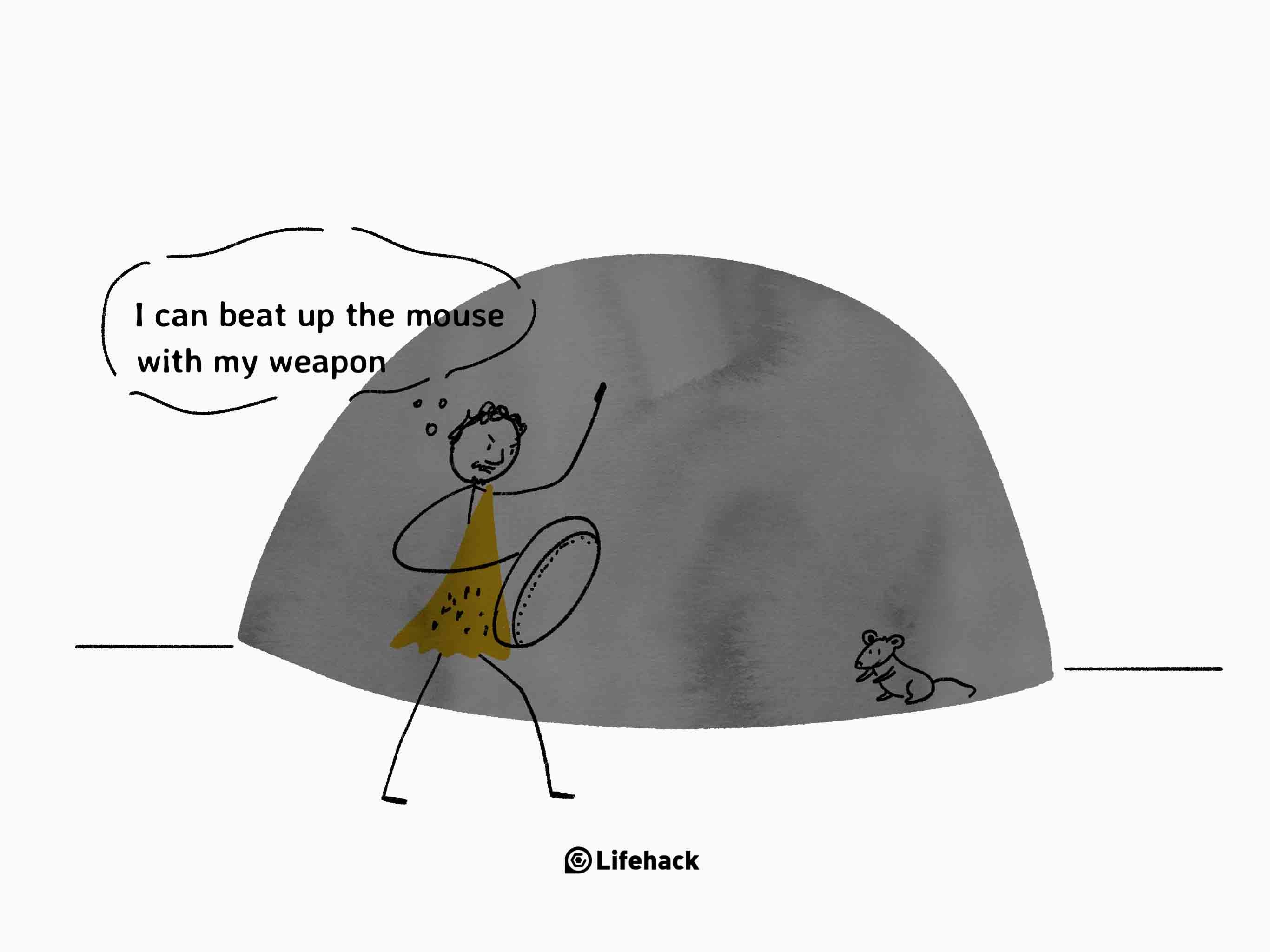In 2003, Aron Ralston went hiking alone in southeastern Utah. An experienced outdoorsman, the trail didn’t seem to present any danger for him. Things were going well until he slipped, dislodged an 800-lb. boulder, and was pinned to the canyon wall by it. With limited supplies and no way to call for help, he realized that the only way he’d leave the canyon alive was if he amputated his arm. Using a dull multi-tool and leverage, he managed to free himself after five days.[1]
Aron could have lost his wits and died in the canyon. He had to be willing to fight for his life.
We’d all like to stay calm under pressure, but the reality is that some of us panic, while others among us have the drive to fight for what they want.
“Fight or Flight” Keeps Us Alive
When faced with challenges, people tend to panic. Our brains do everything they can to keep us alive. When we’re afraid, it sends us the signal to either fight or flee.
When you are afraid, your amygdala sets off a chain reaction in your brain.[2] Your amygdala is responsible for making you fight or flee, and it can even play a part in self-defeating behaviors and resistance.[3]
When your amygdala perceives that you’re in danger, it sends a distress message to your hypothalamus. The hypothalamus overrides the normal way your brain handles incoming information. It activates the sympathetic nervous system, which triggers what you feel when you are afraid.[4]
We usually respond to a distress signal by fighting or fleeing. When your survival is at stake, you react without thinking. Your brain either tells you to stay on the path and fight through it, or give up.
The Pitfall of Flight
When you are in physical danger, your flight response can save your life. It’s not that flight is bad, but sometimes our brains tell us to flee in situations that aren’t life-threatening.
You may feel the urge to flee when you face something that seems overwhelming. You might tell yourself a negative story about how you won’t succeed if you continue on your current path. With that mindset, failure is almost guaranteed. You don’t believe that you can make it, so you won’t. Flight can keep us from reaching our potential.
People who always choose flight give up quickly. At the first sign of a challenge, they jump to another task. This is the person who runs away from difficulties in their personal and professional lives because they don’t think they can deal with them.
Make Fighting the Only Option
You may have the impulse to run away, but you can re-frame your thinking. Next time you panic over some challenge at work, choose to fight by telling yourself a positive story. Replace your negative self-talk with hopeful internal dialogue.
Even if your positive story doesn’t end up being true, it can be enough to keep you going. People who beat the odds often do so by visualizing an excellent outcome. When you know that your intention is to keep going, it makes you more persistent and keeps you motivated. Hope carries people through the toughest times.
Fight Like You’re in a Video Game
If you take a moment to reflect on your situation, you can imagine a positive message that will override the negative story you’re telling yourself. Any time self-doubt creeps into your head, play your positive story.
Make overriding your fear a game. Games are fun, and they break challenges into more bearable parts. Playing games that are too easy is boring, which makes challenges the perfect thing to turn into a game. Challenging games are more difficult, but they’re more fun and engaging.
The best games have multiple levels, enemies that increase in difficulty as you become a better player, and achievements along the way. When you get an achievement, it motivates you to strive for the next level.
As you play, you can look back and see your progress. You either fail and have to try again, or you succeed and get something good for all your effort. This process is addictive to players.
One of the best ways to turn challenges into games is to break your big goal into smaller steps. Milestones help you check your progress and stay motivated. Achieving a milestone is like entering a new level of the game. Give yourself rewards and punishments so that you have extra motivation to move forward.
Ralston’s brush with death wasn’t a fun game by any stretch of the imagination, but he did have certain milestones that he reached in order to decide what to do next. At first he tried to survive with the limited supplies he had. He hoped someone would find him.
When his supplies ran out, and it became clear that nobody would find him, had to take more serious action. After he discovered that his hand was dying from being trapped under the weight of the boulder, he realized he would lose part of his arm anyway. This knowledge combined with his ultimate goal of survival led him to do what he had to do.
Even though his work was gruesome, he described grinning when he realized he was going to make it out of the canyon. When he freed himself, he got over the largest hurdle in his ordeal.
Keep on Playing
If Aron Ralston decided not to fight, he would have died. For him, there was nowhere to run, but if he fought he stood a chance at making it.
People who reach their fullest potential don’t give up easily. They don’t run away at the first sign of trouble. They take the hits and keep going.
However, there are some times when you do have to quit in order to win. Be on the lookout for my next article on when you should quit in order to get ahead.
Reference
| [1] | ^ | The Telegraph: 127 Hours: Aron Ralston’s story of survival |
| [2] | ^ | Daily Mail: Scared stiff: Scientists discover how the brain sends signals to make us ‘freeze’ when faced with danger |
| [3] | ^ | Medium: Your Resistance Brain Stops You From Being Awesome (And How to Fight Back) |
| [4] | ^ | Harvard Health Publishing: Understanding the stress response |

